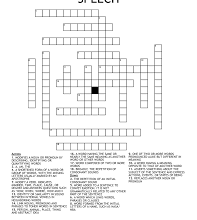Learn More about 31 kg in pounds

Curious 31 kg in pounds about how much 31 kg weighs in pounds? Let’s dive into the world of weight conversions and unravel the mystery behind these two common units of measurement. Whether you’re a fitness enthusiast, a traveler planning luggage limits, or just someone with a curious mind, understanding how to convert kilograms to pounds can be incredibly useful. So, let’s break it down together!
What is a kilogram and how is it different from a pound?
When it comes to weight measurement, a kilogram and a pound are like distant cousins – related but with their own unique traits. A kilogram is the base unit of mass in the International System of Units (SI), commonly used worldwide. On the other hand, a pound is a unit of mass predominantly used in the United States and some other countries.
While both units measure mass, they differ in terms of conversion factors. One kilogram is equivalent to approximately 2.20462 pounds. This means that if you have an object weighing 1 kg, it would be around 2.2 pounds.
In everyday life, you might not think much about these measurements until you need to convert them for various purposes such as cooking or shipping packages internationally. Understanding the distinction between kilograms and pounds can come in handy when dealing with different measurement systems across the globe.
The calculation for converting kilograms to pounds
Converting kilograms to pounds may seem daunting at first, but it’s actually quite straightforward. To make the conversion, you simply need to multiply the weight in kilograms by 2.20462. This factor accounts for the difference in measurement between the two units.
For example, if you have 31 kilograms that you want to convert to pounds, you would multiply 31 by 2.20462 to get approximately 68.34 pounds. It’s as simple as that! Understanding this calculation can be helpful when dealing with weights in different units and making quick conversions on the go.
Whether you’re planning a trip abroad or just curious about how your weight translates into different systems, knowing how to convert kilograms to pounds can come in handy. Plus, it’s a great way to exercise your brain and stay sharp with math skills!
Common misconceptions about the weight conversion
When it comes to converting weight from kilograms to pounds, there are some common misconceptions that can lead to confusion. One of the biggest misunderstandings is thinking that one kilogram is equal to one pound – in reality, 1 kg is approximately 2.20462 pounds. Another misconception is assuming that rounding up or down doesn’t make a significant difference in conversion accuracy; however, even small variations matter when dealing with precise measurements.
Some people also mistakenly believe that converting between kilograms and pounds requires complex mathematical calculations every time. In fact, there are many tools and resources available online that can quickly and accurately convert weights for you. It’s essential to be aware of these misconceptions so you can confidently and correctly convert between kilograms and pounds without any confusion or errors.
Understanding the correct conversion factor and utilizing helpful tools will ensure accurate results every time you need to switch between metric and imperial units effortlessly.
Tools and resources for easily converting between kilograms and pounds
When it comes to converting between kilograms and pounds, having the right tools and resources can make the process a breeze. Online converters are readily available on various websites, allowing you to quickly input the weight in one unit and get an instant conversion to the other.
Mobile apps dedicated to unit conversions are also handy tools that you can carry with you wherever you go. Simply enter the value in kilograms or pounds, and let the app do the math for you in seconds.
For those who prefer a more traditional approach, physical conversion charts are still widely used. These charts typically display common weights in both kilograms and pounds side by side for easy reference.
No matter which method you choose, having access to these tools can simplify your daily tasks involving weight conversions effortlessly.
Examples of everyday objects and their weights in both kilograms and pounds
When it comes to understanding weights in kilograms and pounds, visualizing everyday objects can help put things into perspective. For instance, a standard laptop typically weighs around 2.5 kilograms or approximately 5.5 pounds. If you think about a medium-sized watermelon, that’s roughly 3 kilograms or about 6.6 pounds.
Moving on to something heavier, a newborn baby usually weighs between 2.7 to 4 kilograms (around 6 to 9 pounds). When it comes to gym equipment like dumbbells, a pair of them weighing about 4.5 kilograms equals roughly 10 pounds.
In the kitchen, a bag of sugar weighing around one kilogram is equivalent to approximately 2.2 pounds – so next time you’re baking and see that number on the packaging, you’ll have a better idea of how much weight we’re talking about!
Conclusion: Understanding the metric system can make life easier
Understanding the metric system can make life easier. By familiarizing yourself with basic conversions like 31 kg to pounds, you’ll be better equipped to navigate the world of measurements and weights. Whether you’re traveling abroad, following a recipe from another country, or simply trying to understand the weight of an object in a different unit, knowing how to convert between kilograms and pounds can come in handy. Embracing the metric system opens up a world of possibilities and makes everyday tasks simpler. So next time you come across 31 kg, remember that it’s approximately 68 pounds – knowledge that might just prove useful one day!




